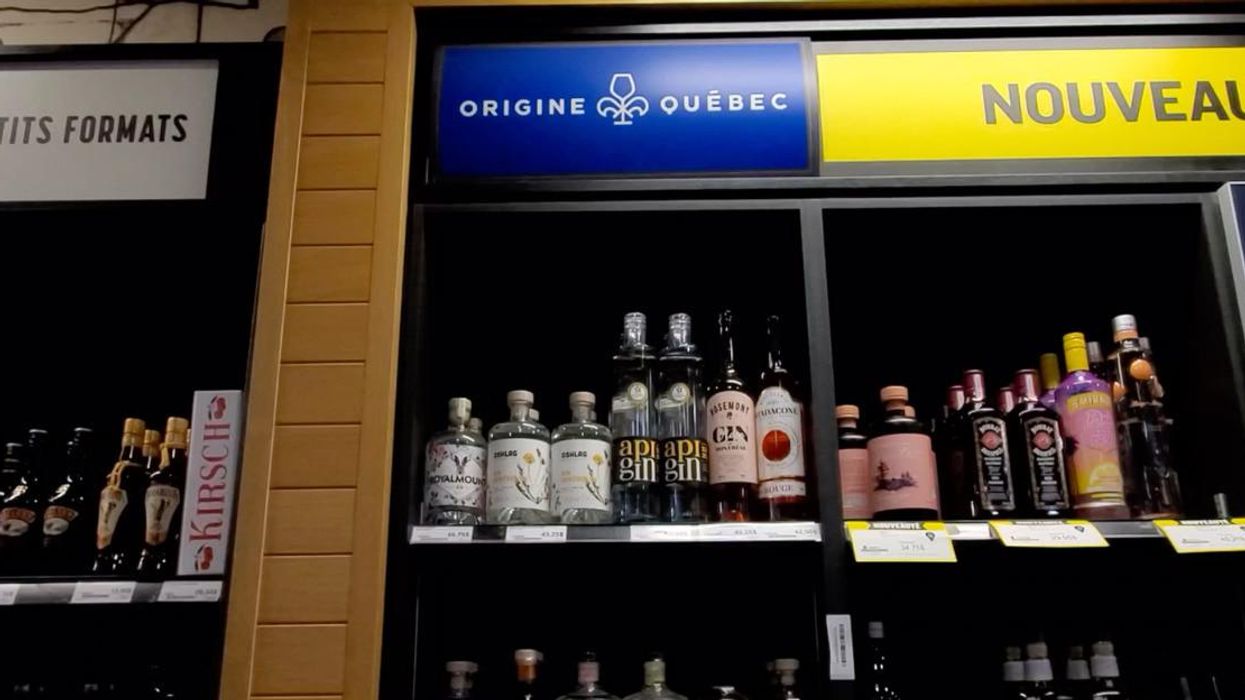Quebec Liquor Makers Warn They May Go Bankrupt If Provincial Tax Rules Don't Change
"It's one minute to midnight."

Shelves at the SAQ stocked with Quebec-made spirits.
Spirits are low among some Quebec boutique liquor makers who say they're facing bankruptcy this summer unless the provincial government reduces the sales tax that makes it unprofitable to sell bottles outside of the SAQ.
The Union québécoise des microdistilleries (UQDM) reports nearly two out of three independent spirit producers are done bottling up their frustrations after barely keeping their businesses afloat due to a hefty SAQ tax. The association represents over 55 small-batch distillers that all pay around 50% of the sale price on each bottle to the crown corporation, whether or not it has a hand in the distribution, marketing, or sale of the product.
"It's one minute to midnight. The regulatory and legislative situation is suffocating microdistilleries and if nothing changes it will be the end for many of us," said UQDM President Jonathan Roy in a statement.
Quebec has one of the highest markups on spirit sales in the country, especially for bottles sold at their site of production. Under current sale regulations, around half of the money paid for every bottle at a distillery goes to the SAQ.
According to the UQDM, that system favours wholesale distribution, a model that works for largescale international spirit producers who make such high liquor quantities that SAQ taxation doesn't eat into their profits. In contrast, local small-batch producers with lower profit margins take a heavy loss.
To even the playing field, the UQDM said it has proposed creating a set tax that would be paid directly to the government. The change would see a decrease in the province's site-of-sale tax for microdistillers, which would replace the automatic SAQ payout.
“Our solution would allow Quebec microdistilleries to survive and ensure the integrity of state coffers," said Roy.
Over the past two years, the UQDM has reported that a majority of Quebec spirit producers have taken a hit after losing more than a third of prior SAQ sales during the pandemic.
Meanwhile, the SAQ said it is bound by trade agreements that force it to apply an "equal markup for all products in the same category," regardless of their origin.
"The SAQ cannot grant preferential treatment to Quebec producers," SAQ spokesperson Linda Bouchard told MTL Blog.
"The decision to authorize the sale of spirits at the site of manufacture was based on a desire to offer additional marketing channels to distillers, while also not limiting the SAQ in its oversight of alcohol products, or depriving the government of the revenue it collects in order to fund public services," she said.
